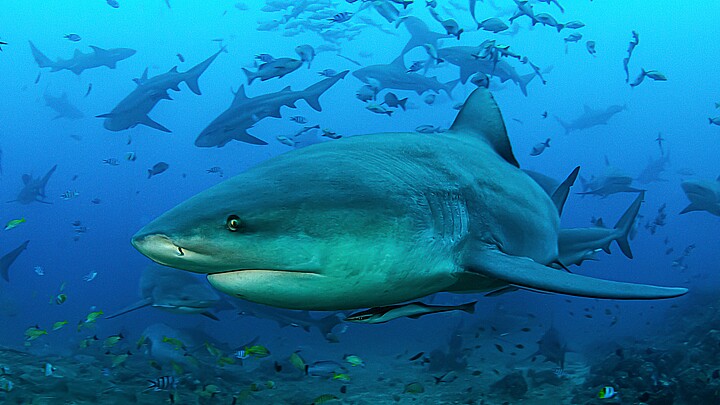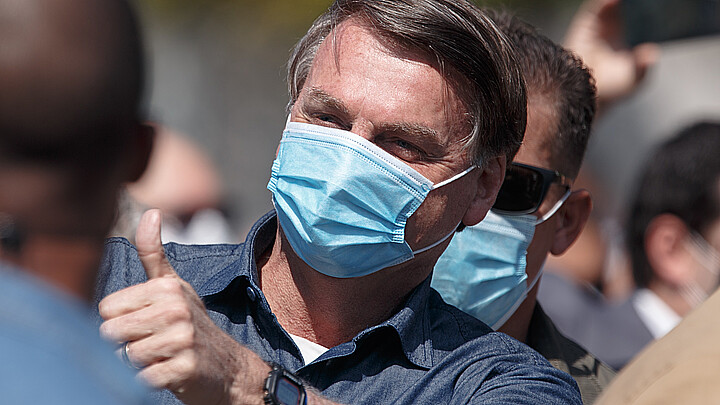Health
Brazil warns international food crisis is on horizon
"Unfortunately, I have no doubt that we will face a global food crisis. And Brazil will have the responsibility of feeding both its people and the world," Montes said during an event
May 4, 2022 2:51pm
Updated: May 4, 2022 4:10pm
Brazil’s Agriculture Minister Marcos Montes warned on Wednesday that the world is poised to face a food crisis and that his country is preparing to plug holes in both foreign and domestic markets.
"Unfortunately, I have no doubt that we will face a global food crisis. And Brazil will have the responsibility of feeding both its people and the world," Montes said during an event, Reuters reported.
Brazil is an agricultural powerhouse and currently is one of the world’s biggest exporters of products including soy beans, corn, sugar, coffee and meat.
Since Russian President Vladimir Putin announced the invasion of Ukraine on Feb. 24, Brazil has been weary of cutting ties with Moscow – one of the South American country’s most important trade partners.
Shortly before Russian forces invaded Ukraine on Feb. 24, Brazilian President Jair Bolsonaro defied his advisors and allies and flew to Moscow to meet with Russian President Vladimir Putin, declaring that his nation stood in “solidarity” with Russia. Putin, in turn, named Brazil as Russia’s most important Latin American partner.
“We are in solidarity with Russia,” Bolsonaro told Putin. “We very much want to collaborate in many areas — defense, oil and gas, agriculture. The meetings are happening.”
However, some analysts have said that Bolsonaro’s desire to preserve friendly relations with the Kremlin could be driven by trade and not ideology.
Brazilian farmers were already facing a fertilizer shortage, but pressure to find new suppliers is growing as the Kremlin’s illegal war in Ukraine threatens to cut off shipments to the world’s largest producer of coffee, soybeans and sugar.
Although Brazil is one of the world’s most important food producers, it is also notoriously dependent on imported fertilizer and imports about 85% of its fertilizers from abroad – with approximately 20% of the total imports coming from Russia, The Wall Street Journal reported.
This is a worrisome figure considering the Russian trade ministry has called for a broad suspension of fertilizer exports.
"Brazil depends on fertilizers…it’s a sacred question for us," Bolsonaro told reporters in March after being pressed about his decision to maintain friendly relations with Moscow.
Bolsonaro’s concerns are well founded as rising fertilizer prices could make it impossible for Brazilian farmers to hit their output targets, potentially driving up global food prices.
Brazil is, after all, one of the world’s biggest corn, soy and beef producers. Higher grain prices increase animal-feed costs, which ultimately means customers will have to pay more for at the grocery store. The poor in Latin America, still struggling after the pandemic devastated the global economy, could be hit the hardest.
"No one knows what’s going to happen," said Ricardo Arioli, a soybean farmer from Brazil’s center-west state of Mato Grosso. "War means a total lack of certainty. The cost of production becomes a big unknown," he said.
Although the Brazilian government has said it has enough fertilizer stocks to last farmers until October, not everyone is so optimistic and The Brazilian National Fertilizer Association has warned that local fertilizer stocks will only last for another three months.
"We are now experiencing firsthand what it means to depend on imported fertilizer," said Jeferson Souza, a fertilizer analyst at Agrinvest Commodities, a brokerage in Brazil. Sluggish productivity has kept Brazil from developing a bigger domestic fertilizer industry, he said.
But many farmers are worried that the steps being taken amount to too little, too late.
"Brazil has the technology to produce," said Antonio Galvan, a farmer and head of Brazil’s Soybean Producers Association. "Now with these embargoes, the price of fertilizers could go up so much that it’s not even worth planting."








